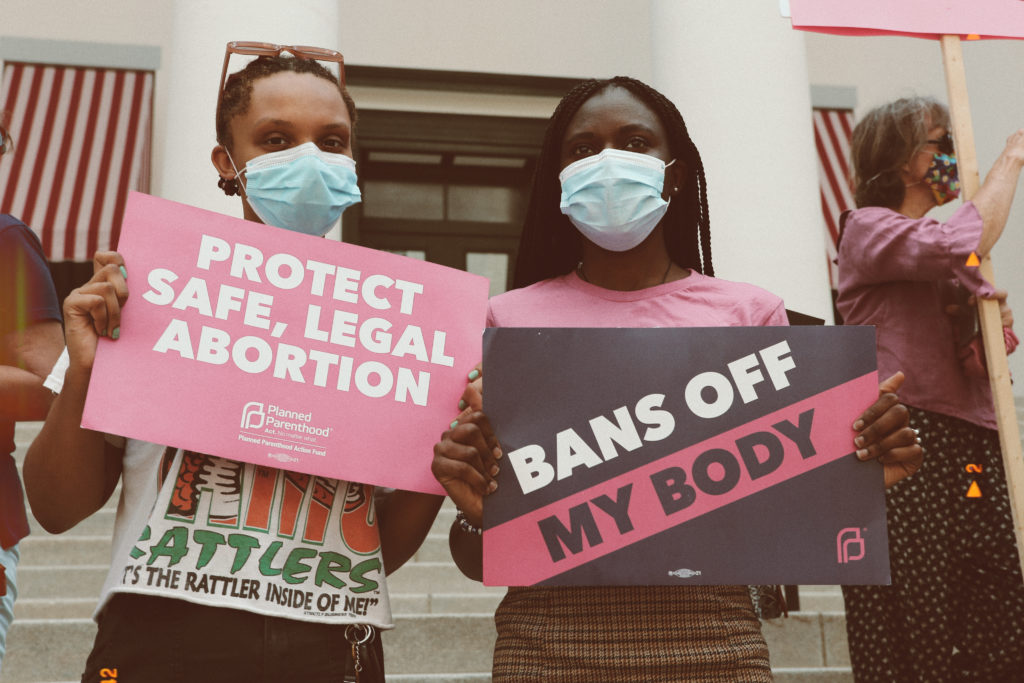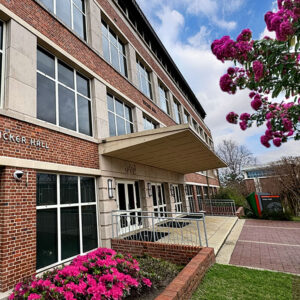Politics | September 22nd, 2021
What Texas’ Abortion Ban Means For Women of Color In Florida
By: Mia Uzzell

Earlier in September, the Supreme Court refused to block Texas’ novel fetal heartbeat abortion law — a seeming rejection of Roe v. Wade’s legal precedent. Now as conservative-led states look to adopt similar bills, protesters in Florida are taking a stance against anti-abortion legislators with women of color in mind.
On Tuesday, Planned Parenthood hosted “Ban Off Our Bodies” at the Florida State Capitol to sound the alarm on the imminence of Texas’ S.B. 8 in the state. The law, which took effect on September 1, bans abortion after six weeks when a “fetal heartbeat” is detected and allows anyone to sue both doctors and citizens who help Texans in the state access abortion beyond that time period. At the crux of the swelling crisis, activists fear Black and brown women will disproportionately face the underbelly of the regressive legislation.
“Sometimes, just based on the lack of adequate healthcare in Black and brown communities, particularly Black communities, oftentimes pregnancy can be a death sentence,” Rep. Angie Nixon says. According to the CDC, Black women have one of the highest maternal mortality rates, 3.2 times greater than that of white women. The towering statistics coupled with the disparaging healthcare Black women is a portent of what is possibly to come.
Moreover, Nixon laments how the lack of fiscal accessibility within minority communities is a subsequent barrier to them receiving safe abortions. Although abortion rates have been steadily declining in America, reports suggest abortion rates amongst Black women and hispanic women are respectvely 2.71 times and 1.81 higher than white women, pointing to the luxury of family planning in white communities that evade unintended pregnancies. “Unfortunately, if this bill passes it’s going to negatively impact our communities because rich white women are going to find a way to have abortions if they need it. It’s going to be minority communities who will have to be in the back of alleys or go to makeshift doctors to have abortions and risking their lives.”
Abortion providers surmise the six-week ban eliminates abortion care to only four weeks after conception and realistically only one week from when a person could find out they are pregnant. “We’ve heard the conversation that most people don’t know that they are pregnant at six weeks,” Rep. Michele Rayner says. “With menstrual cycles, you can be two to three weeks late because of stress, lack of sleep, diet change, weight change or anything.”
According to research from the Center for Reproductive Rights (CRR), state-level abortion restrictions and maternal health outcomes are inversely related — and the correlation is presumably more distressing for women of color. “When we think about Black and brown folks, our ability to access abortions and healthcare is not as high as our white counterparts. When we think about Black women’s health and mortality issues, if we limit abortion — which is health care — that is automatically going to affect Black and brown folks. It’s a race issue. It’s a justice issue. It’s an equality issue.”
Tray Johns is the executive director and co-founder of Dignity Power, a non-profit organization which has long championed the reproductive healthcare of incarcerated women in Florida. In 2019, the coalition has secured free menstrual hygienic products for incarcerated women. After Tammy Jackson gave birth while behind bars at the North Broward Bureau, the coalition similarly advocated for legislation that ensured pregnant women who go into labor while incarcerated in the state get “transported to an appropriate medical facility without delay, given proper medical care, and not placed in restrictive housing involuntarily.” In 2020, an act in Jackson’s namesake was signed into law.
For years, Black women in Florida have been mobilizing for reproductive healthcare of marginalized communities. However, as the abortion ban is engulfed in nationwide controversy, Johns believes the integral work of Black activists is being largely ignored. “I want these white women to know that they don’t need to say, ‘Oh, look at Texas!’ Black women have been fighting. We’ve been sounding the alarm. Black women have been here in Florida saying, ‘Hey, we’re about to be Texas!,’” Johns said.






